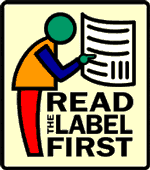Kids deserve a safe place to learn and grow. Today’s children spend a significant part of their lives in school. Pest management is an important, but often overlooked, part of school safety.
Pests can cause stings and bites, and can trigger allergies. In addition, some pests pose health threats by spreading germs and filth. Unmanaged pest problems can result in damage to school property, unsightly landscapes and other unsafe conditions.
Integrated Pest Management, or IPM, is a strategy of managing pests using multiple control tactics that provide the best control with the least cost and environmental impact. IPM is based on thorough knowledge of the pests and the technologies used to control them, and can be performed by anyone with proper training. A good IPM program attempts to make schools less hospitable to pests by modifying the environment, like improving sanitation, and eliminating pest harborage sites, along with using the lowest impact pesticides as necessary. Managing risks from pests and risks from the pesticides used to control them are top priorities under an IPM program.
OUR MISSION:
“To provide the best professional integrated pest management training and advice for school districts and other environmentally sensitive institutions in Texas and the Southwest.”
This work is supported in part by the Crop Protection and Pest Management, Extension Implementation Program [award no. 2021- 70006-35347/project accession no. 1027036] from the United States Department of Agriculture (USDA) National Institute of Food and Agriculture.






 .
.